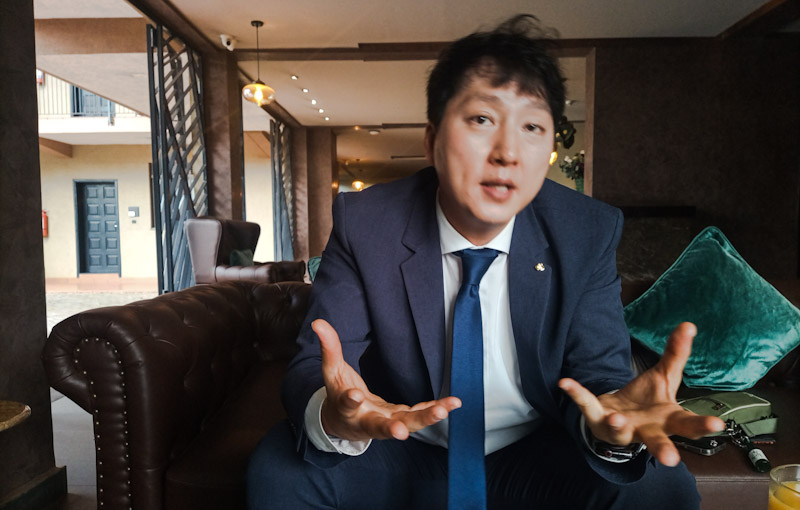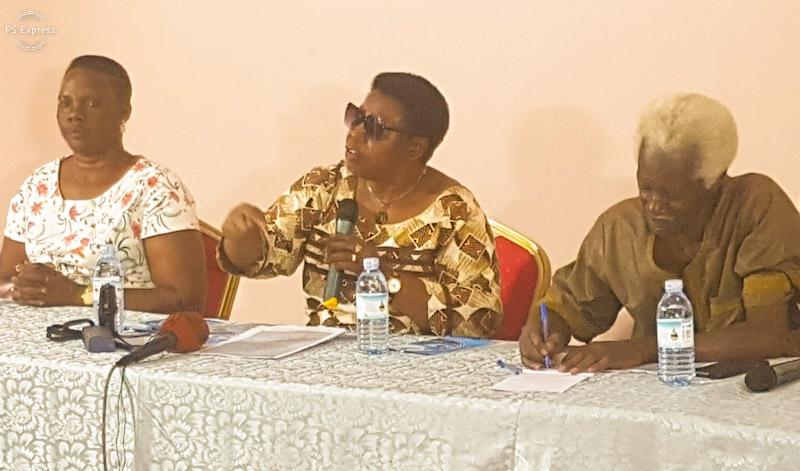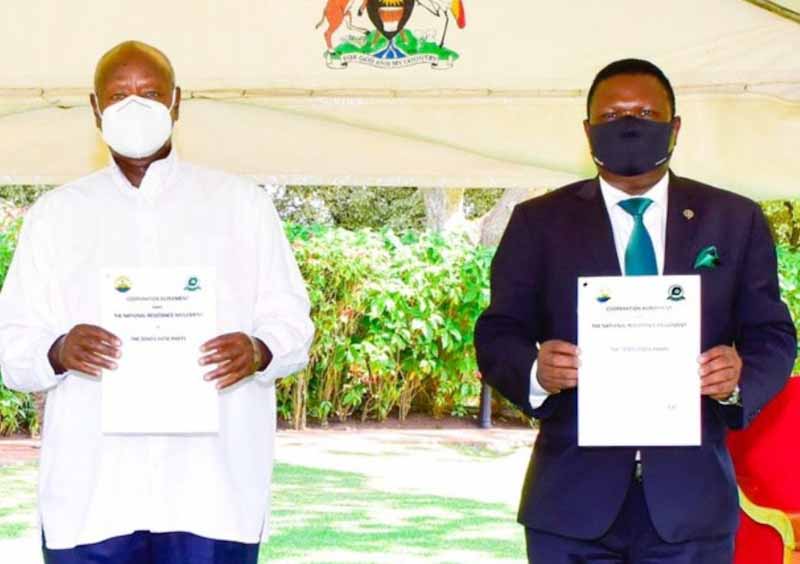As you build roads and dams, do not forget to invest in young people and women
Uganda is aspiring to become a middle income country in the next four years. My students often ask me: Why is our country so poor? These are adults at university wondering about the loads of poverty they see around and have grown in. Globalisation has exposed the current generation of young Ugandans to what affluence can offer. Some have traveled to Western Europe, North America, and parts of Asia. They have encountered what sociologists call a ‘culture shock’.
If your eyes have grown up seeing poverty, and all of a sudden look at well-fed and well-dressed people, nice houses and buildings, electricity that does not go off, clean and healthy environment, and a violence-free neighbourhood, you cannot avoid wondering what happened to your own society.
This exactly is what economists often ask: If the earth was created on the same day, and with all people equal, what explains the differences in development levels of countries? Why are some countries stupendously rich and others, such as Uganda, horrendously poor? Why is it that Uganda, or generally Africa, among all places on earth, seems to be locked into a cycle of dysfunction?
Dambisa Moyo put it more precisely, “Are Africa’s leaders genetically more venal, more ruthless, more corrupt; what is it about Africa that holds it back, that seems to render it more incapable of joining the rest of the world in the 21st Century?”
Whenever these questions are asked, our leaders or their hangers-on get on the defensive. They accuse those of us who keep asking these questions of all sorts of things – being Mzungu worshipers, being unpatriotic, and not being Pan-Africanists, etc. These accusations are certainly debatable. What is not debatable is the fact that Africa is not only the poorest continent on earth but also the least progressing.
The best fate for Africa
Some are still accusing the colonial legacy that destroyed not only the creative forte of our grandparents but also left behind institutions that continue to hold Africa back. Like Boris Johnson,
Britain’s new Foreign Secretary, put it in an interesting article he wrote in The Spector of February 2, 2002, “The best fate for Africa would be if the old colonial powers…scrambled once again in her direction…”
In the past 70 years, economists have attempted to explain the development gap between rich countries and the poor ones. The most popular explanations range from geography to institutions to culture. Others have cited ignorance of some leaders while some have attributed it to factors such as ethnicity and international politics.
Those who cite geography as the main cause of poverty argue that all poor countries lie between the Tropics of Cancer and Capricorn. Rich ones are in temperate latitudes. Some of the challenges they relate to a country’s geography include: high prevalence of disease, lack of navigable rivers for transportation, meager productivity of rain-fed agriculture, shortage of coal, natural resources which breed bad leaders, among other challenges of the tropics.
Those of institutions (the rules of the game in a society) argue that poor countries are those under ‘extractive’ political institutions. These are institutions that place power in the hands of a few (a small elite) that use the power to enrich themselves and inhibit economic progress for everyone else.
Those who believe it is culture that has kept some countries like Uganda in poverty argue that some religions, traditions, and roles given to women and men, as well as work ethic, belief in witchcraft and magic, are the main reasons we are stuck in poverty.
What happened in rich countries?
Well, whatever hypothesis one considers, there are some empirics that are indubitable. (1) Development is a process of generating new activities and letting others disappear. (2) Historically, it has been impossible to become a rich country without creating an industrial sector and an advanced service sector. (3) No country has ever become rich without explicit government interventions that amount to industrial policy in different shapes and forms.
Any serious leader who wants to turn around their own societies need to ask: What happened in the developed countries? A number of things happened in the countries that we admire today, beginning in the Netherlands, then England, then some countries Western Europe, and then the U.S.
These countries experienced certain things which are beginning to take shape in Uganda, albeit at very slow pace. First, household technology changed, creating the engine of liberation of women. For example, from fetching water, energy, and household needs, women’s work and its significance reduced. In the U.S, for example, meal preparation, laundry, cleaning took 58 hours per week in 1900, and only 18 hours in 1975.
Today the above household activities take only 6 hours per work of an American woman, according to the June 2016 figures from the American Bureau of Labour Statistics. There is no reliable data on the same in Uganda. However, estimates indicate that on average a Ugandan woman spends nearly 84 hours per week doing housework – rearing children, cooking, fetching water, doing laundry, cleaning etc.
Second, the developed countries experienced changing role of children. Parents stopped looking at children as agents of production services to those bringing utility. This meant that not so many children were needed any longer. They moved from quantity to quality of children.
The fertility burden
In Uganda parents still produce children for other reasons other than the utility they derive from them. Either the children ‘keep on coming’ accidentally, as one lady in Eastern Uganda once told me or the parents produce them for ‘security reasons’; “Let me produce ten children, six might die and I remain with four.” This is the main reason behind the high and stagnant fertility rates among Ugandans.
Talking about fertility brings me to the third important thing that happened in the developed countries over a century ago. Declining fertility, falling mortality, longer lives, and rising population propelled countries to affluence.
Economics teaches us that the household decision for children is determined by three factors: (1) family preference for a certain number of surviving children, (2) the price or opportunity cost of rearing those children; and (3) the levels of family income.
So the reason there are so many children in poor societies such as Uganda is because children in poor societies are seen as economic “investment goods” rather than a “consumption good”, in that there is an expected return in the form of both child labour and provision of financial support for parents in old age. This is what Simon Kuznets found 60 years ago, and I think he was right.
Gary Becker later explained why fertility falls as income rises overtime by saying that the cost of rearing children tends to rise especially because opportunity cost of the parent’s time goes up. Working mothers, more than housewives, will tell you it is not easy to rear children. So given the rising cost of child quality, economists believe many parents often invest in child quality and spend more money as the number of children increases, hence the preference for fewer children.
Transitory growth ain’t development
Therefore, Mr. President, if you want to deliver Uganda to middle income status, you must start working on things that cause a natural fall in fertility. Invest more in young girls such that their real wages increase. This will play a role in raising family incomes, an important component that will incentivize women to start investing in quality rather than quantity of children.
This calls for increase in female education. Over 46% of the girls that enroll in primary schools do not complete. They drop out to start producing fellow children. Every 115 girls aged between 15 and 19 out of 1000 give birth to fellow children.
Others get into non-gainful employment, forcing them into situations where they are abused. Statistics show that vulnerable employment among girls (as a percentage of total women employed) stands at 92%, while only 8% of them are categorized as wage and salaried workers.
Mr. President, what makes a country rich is productivity. Productivity growth comes from investing in two things — new technology and human capital. Your government must get people to be better educated, to be better trained, and to have better knowledge. That is the only way Uganda will become a developed country.
Uganda will need good roads, more electricity and more foreign investors to develop. But with the kind of education and training the young people currently get, these ‘observables’ will not help the country. They will continue to use the roads to dry their cereals and electricity to catch grasshoppers. This will bring some transitory growth but not development.









